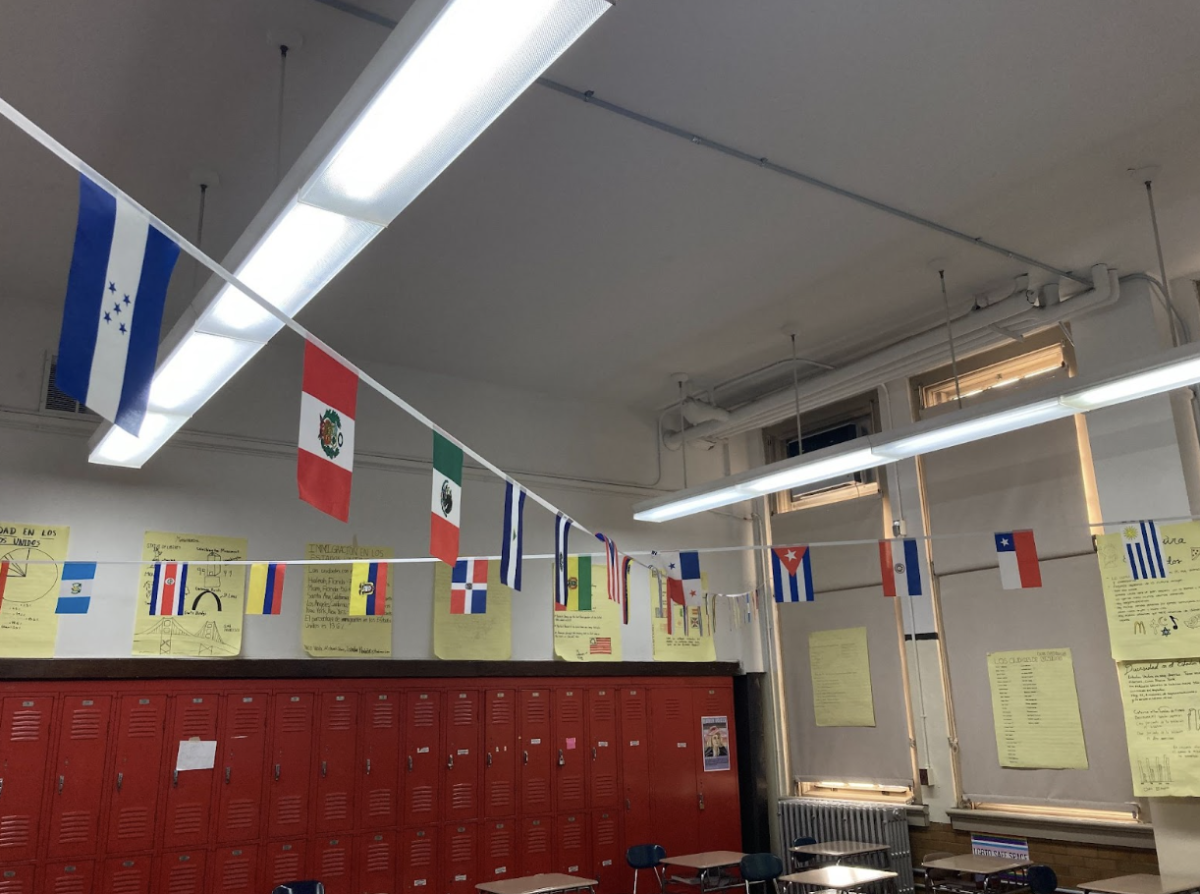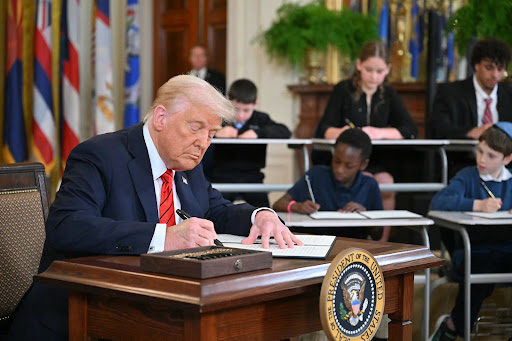With an influx of immigrants to New York in the past year, public schools across the state are facing a major dilemma: a shortage of teachers certified to teach English as a New Language (ENL) students. The New York State Education Department, in its scramble for a solution to the uneven ratio of students in need of ENL services to teachers certified to teach them, issued an emergency supplemental certification process to expedite the procedure for teachers to become ENL-certified.
According to Brooklyn Tech’s Comprehensive Education Plan (CEP), there are eight teachers at Tech with both ENL and content area or common branch certifications, serving 23 former ENL students, or students who have recently graduated from ENL status, and three current ENL students.
Brooklyn Tech is currently working to bolster its ability to provide ENL services by encouraging current teachers to get ENL certification under the newly introduced certification process.
“We could get extensions from people we currently have, to satisfy what we need to do and keep us in compliance,” said Principal Newman regarding the new ENL credential. “There seems to be a small window currently where it is rather easy to get these extensions, so I think that’s the route we’re going to go.”
This new campaign would expand Tech’s ability to provide a wider variety of support to ENL and former ENL students.
At Brooklyn Tech, ENL students who have not yet passed the New York State English as a Second Language Achievement Test are provided extensive attention in terms of their class placement and their interactions with ENL-certified teachers. In their classes, ENL students are taught in ways that are more helpful to their education than students who do not yet have a full grasp of the English language.
Mr. Newman described these teaching methods as “scaffolding.” “It’s just ramping students up to if need be tackling the same complex texts that other students tackle. And so, it’s giving them more support, and in some ways leveling the playing field,” Mr. Newman said.
Former ENL students are treated in a vastly different manner, often receiving far less attention due to their fluency in English. However, they are still entitled to former ENL-specific services. Having graduated from the ENL program, they are required to take an “integrated ENL” curriculum, or classes that would assist them in their transition from the ENL curriculum to the Common Core curriculum.
According to the DOE’s policy and reference guide for multilingual or ENL learners, 90 minutes per week of “Integrated ENL or other services that monitor and support the student’s language development and academic progress,” are required for all former ENL students.
New York public high schools have numerous options to fulfill these requirements, including integrated ENL services, project-based learning, small group learning, or enrollment in a “rigorous” class, such as an Advanced Placement (AP) class, in which the classroom teacher and an ENL-certified teacher communicate regarding an ENL student’s progress.
Currently, the only available integrated ENL option for former ENL students at Tech is to take an advanced class — typically an AP class. The school provides some support for former ENL students in these rigorous classes: extended time, the provision of glossaries and dictionaries on mandated assessments, and optional small-group instruction or tutoring. Teachers are also informed of any former ENL students in the class and the support they are entitled to.
However, this extra support has often been inadequate for former ENL students. Students transferred to these classes have complained of isolation from their AP classmates, difficulty understanding the advanced vocabulary, and confusion as to why they were transferred.
A month into the 2021-2022 school year, the school transferred former ENL student Shuyi Wang (‘25), a then-freshman, from Pre-AP World History into AP Human Geography, a class typically offered to upperclassmen. Wang estimated that there were three other former ENL freshmen with her in a class full of juniors.
The school provided Wang no explanation as to why she was placed into the college-level course, only that she was not allowed to transfer back into Pre-AP World History, the Social Studies class taken by every freshman at Tech. “I asked my [guidance] counselor, and she said, ‘That’s the school’s decision, we probably cannot change it for you,’” Wang explained. “I asked her if she could put me back in the Pre-AP World class, but she said ‘No, we can’t.’”
Like any core classes that New York high school students must take to graduate, Wang’s AP class was prescribed by the DOE as a part of her former ENL curriculum, so the program change was official and subsequently unchangeable.
While Wang and the three other freshmen she knew of in the class that were also former ENL students did receive extra support from their teacher, she still found the class to be challenging due to the “language barrier” and her lack of interest in Social Studies classes.
Veranikah Hukish (‘25) found herself in a similar situation. A month into her freshman year, Hukish found out that she was placed into AP Human Geography, and went to her guidance counselor to try and transfer back. Hukish got the same answer from her guidance counselor: “Well, I can’t do that, because it’s issued by the school, not me.”
Hukish had difficulty making connections with her classmates, most of whom were juniors, expressing that the transfer “affected my friendships in general, because I didn’t have much to talk about with the juniors.”
Hukish also found the curriculum more challenging than the Pre-AP World History class, due to its complicated terminology. “[In Pre-AP World History], I had less vocabulary, and I didn’t understand half of what was happening in the class. I was like, what is going on, and my grade just started dropping.”
Wang and Hukish were never afforded one-on-one support with an ENL-certified teacher, and the communication between ENL-certified staff and the Pre-AP Human Geography teacher was minimal. Although Tech’s CEP mentions small-group instruction and tutoring, no such resources were provided for these former ENL students beyond what is available for the general student body.
With more ENL-certified staff on hand, Tech would better be able to offer available class options beyond AP courses for former ENL students, allowing them to have the opportunity to participate in less intensive, integrated ENL classes, and avoid situations in which students feel overwhelmed or confused by an advanced course that they had no intention of taking otherwise.









































karrowoo • Dec 23, 2023 at 8:33 pm
Thanks for exposing this important issue. Good article.